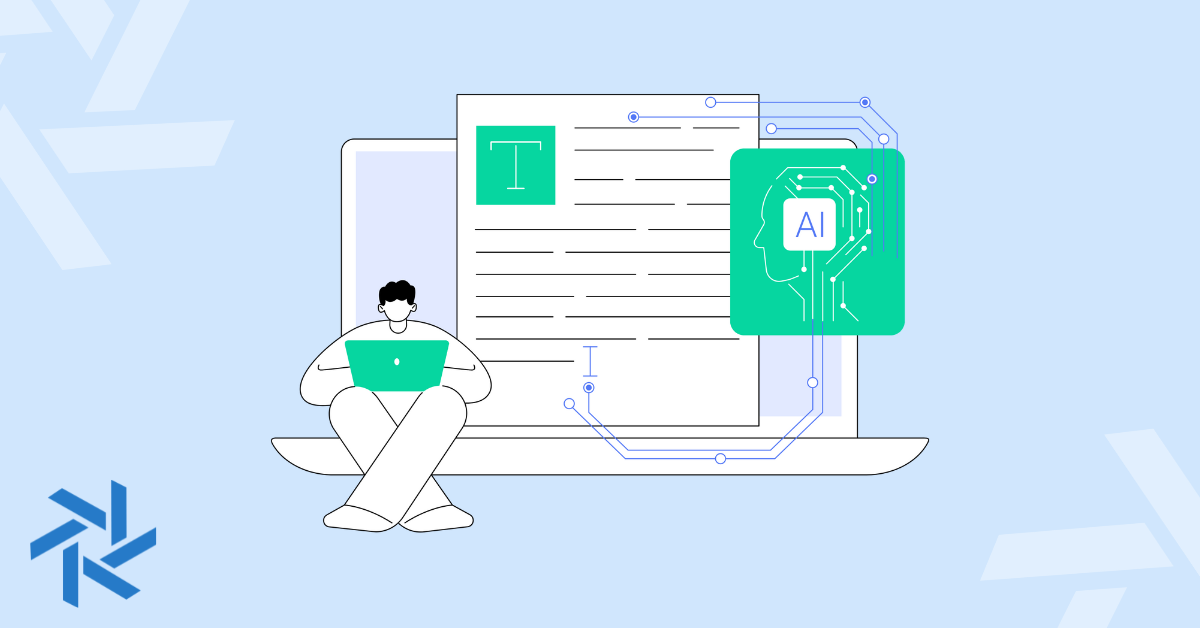Data Analyst vs Specialist: What’s the Difference?

Understanding the roles of a data analyst vs specialist is important for both job seekers and employers.
This article will explain the differences between a data analyst vs a data specialist. We'll also share a list of each role's unique responsibilities, required education, skills, and earnings potential.
But before we begin, did you know that AI Jobs has hundreds of open data scientist and specialist positions at some of the leading tech companies.
Like this one from Vericast, paying a yearly base salary between $90,000 to $110,000.
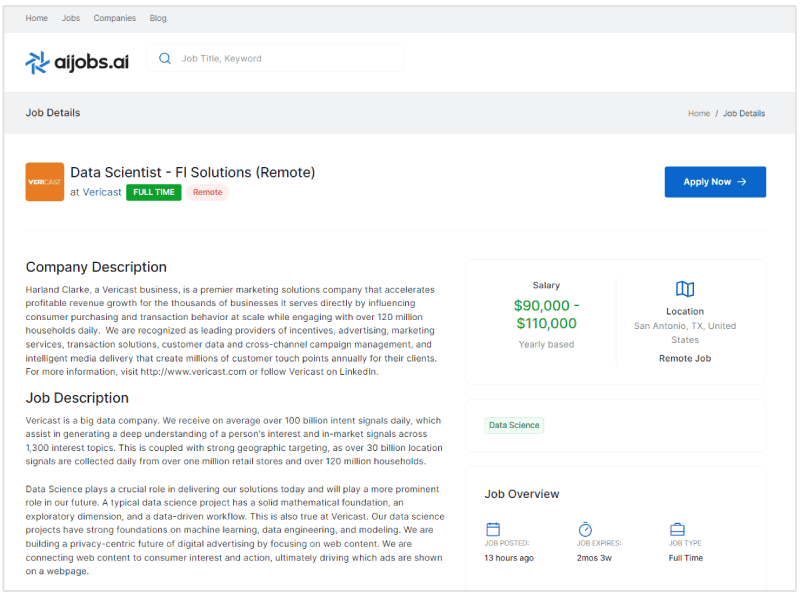
Got an open position to fill? Create a job posting on AI Jobs and get access to thousands of applicants and tech talent.
What is a Data Analyst?
A data analyst is someone who looks at data and helps others understand it. They collect information from different sources, clean it up, and analyze it to find patterns or trends.
In simpler terms, they turn raw data into stories that businesses can understand and use to make better decisions.
Data analysts use tools like Excel, SQL, and statistical software to do their jobs.
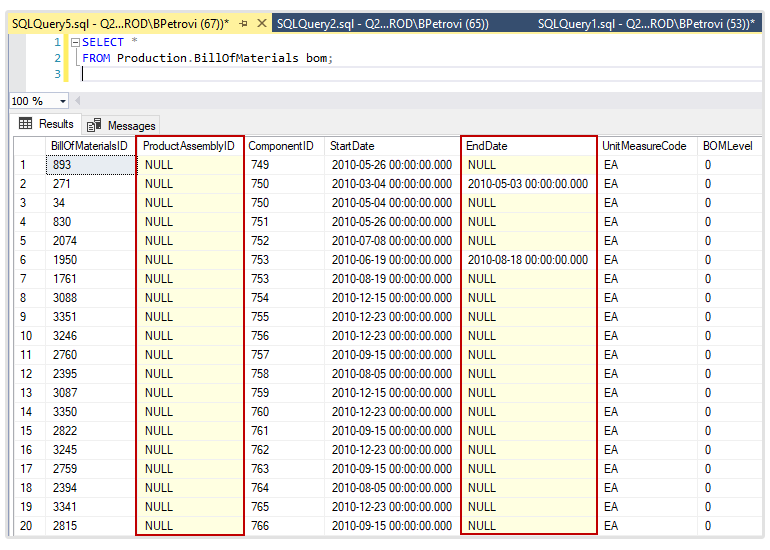
What is a Data Specialist?
A data specialist is an expert who manages and maintains data systems. They ensure that data is stored securely and can be accessed easily.
This can involve tasks like building databases, designing data collection methods, and ensuring the smooth flow of information.
While data analysts delve into the data itself, data specialists make sure the data has a strong foundation to live on.
Now that we've got a clear understanding of the differences between a data analyst and a data specialist, let's talk about the unique responsibilities of each role.
Analyst vs Specialist: Responsibilities
Data Analyst
Here are the key responsibilities of a data analyst:
- Collecting Data: Gathering data from various sources like surveys, databases, or logs.
- Cleaning Data: Removing errors and organizing the data to make it usable.
- Analyzing Data: Using tools and software to identify patterns, trends, and insights.
- Creating Reports: Creating charts, graphs, and reports to share the results with others.
- Supporting Decisions: Helping companies make informed decisions based on data insights.
Data Specialist
Here are the key responsibilities of a data specialist:
- Managing Databases: Overseeing the creation, maintenance, and updating of databases.
- Ensuring Data Security: Implementing measures to protect data from unauthorized access or breaches.
- Data Integration: Combining data from different sources to create a unified system.
- Troubleshooting Issues: Identifying and fixing problems related to data storage and retrieval.
- Improving Systems: Continuously optimizing data systems for better performance and efficiency.
Analyst vs Specialist: Education
Data Analyst
Data analysts typically require a bachelor's degree in a quantitative field like:
- Statistics
- Mathematics
- Computer Science
- Information Technology
These degrees provide a strong foundation in the core skills needed for data analysis, including mathematics, statistics, programming, and data visualization.
Although a degree isn't necessarily a requirement for a job as a data analyst, technical proficiency is more important. So, if you don't have a degree from a college, consider taking relevant courses in the field of data science.
Courses in data structures, algorithms, database management, and statistical analysis are highly beneficial.
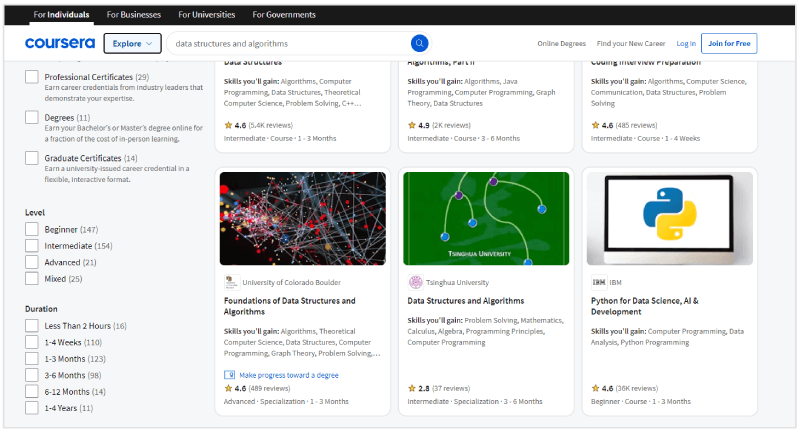
Learning programming languages like Python and R is also crucial.
Additional certifications, such as those from Google Analytics or Microsoft Excel, can enhance your resume and demonstrate specialized skills.
Data Specialist
The educational path for data specialists can vary depending on the specific area of specialization.
Similar to data analysts, a bachelor's degree in a relevant field is a strong foundation for data specialists. This could include:
- Computer Science
- Information Technology
- Database Management
- Business Intelligence
These degrees provide a solid understanding of data structures, database systems, and information retrieval techniques.
Many data specialist roles value industry-recognized certifications that demonstrate expertise in specific data management tools or platforms.

Examples include:
- Microsoft Certified Database Administrator (MCDBA)
- Amazon Web Services (AWS) Certified Database – Specialty
- Google Cloud Platform (GCP) Professional Data Engineer
Analyst vs Specialist: Required Skills
Data Analyst
To excel as a data analyst, certain skills are essential. Here’s a breakdown of the key skills needed:
- Ability to interpret complex data sets and identify patterns and trends.
- Knowledge of programming languages like Python and R, and proficiency in SQL for database management.
- Understanding of statistical methods and their application in analyzing data.
- Skills in creating charts, graphs, and dashboards using tools like Tableau or Power BI to present data insights clearly.
- Precision in handling and analyzing data to ensure accuracy and reliability.
- Ability to approach problems methodically and come up with effective solutions based on data insights.
- Strong written and verbal communication skills to explain findings to non-technical stakeholders.
Data Specialist
While the skills are more or less the same for a data specialist, there are some minor differences:
- Database Management: Expertise in managing and maintaining databases, ensuring they run efficiently and securely.
- Data Security: Strong understanding of data protection measures and best practices to safeguard against breaches.
- Technical Proficiency: Proficiency with database languages such as SQL, and familiarity with database software from providers like Oracle or Microsoft.
Analyst vs Specialist: Salary Expectations
The salaries for both data analysts and data specialists can vary depending on several factors, including experience, location, industry, and the specific company.
Data Analyst
According to Glassdoor, the average salary for a data analyst in the US can range from $86,000 to $137,000 per year.
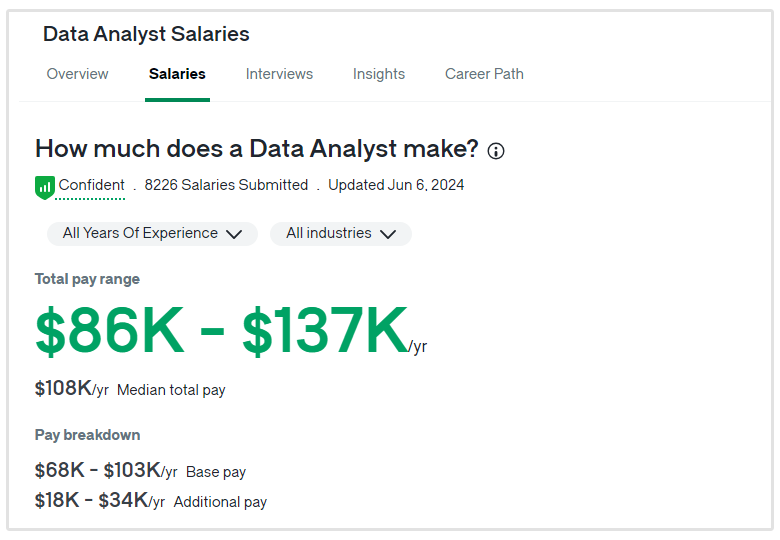
Data Specialist
According to Glassdoor, the average salary for a data analyst in the US can range from $50,000 to $84,000 per year.
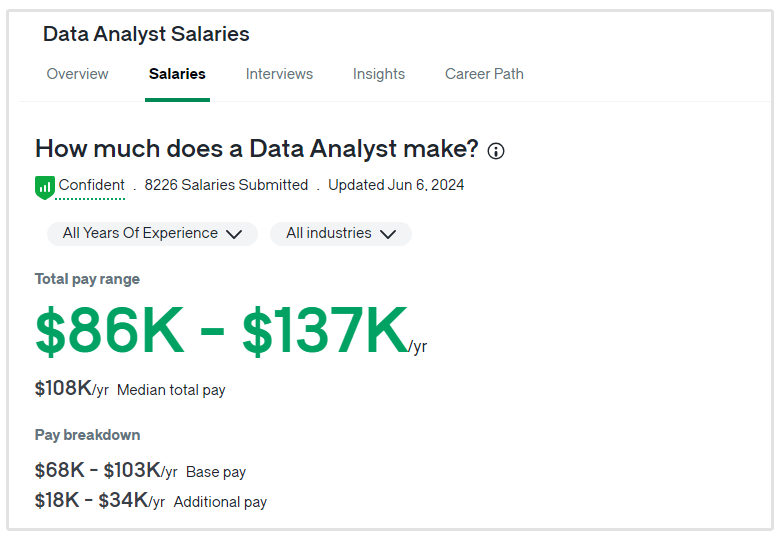
Conclusion
While both data analysts and data specialists work with data, there are some slight differences between the two roles.
Data analysts focus on interpreting and analyzing data to provide actionable insights, often using statistical techniques and visualization tools. On the other hand, data specialists concentrate on managing and securing data systems, ensuring data integrity and accessibility.
Both roles require a strong educational background, specific skill sets, and offer rewarding career paths with competitive salaries. By understanding these distinctions, you can choose the role that best aligns with your interests and career goals.




